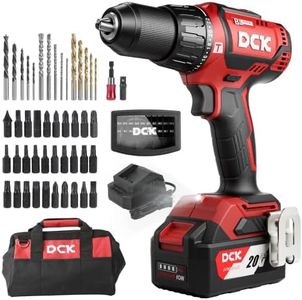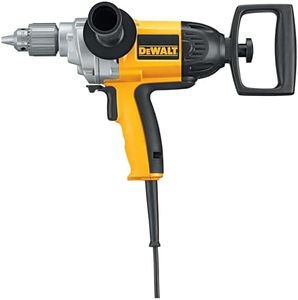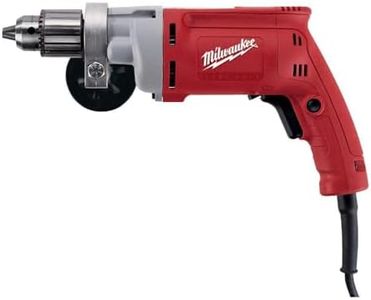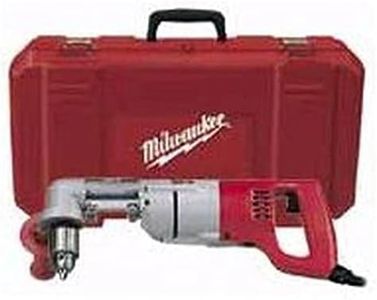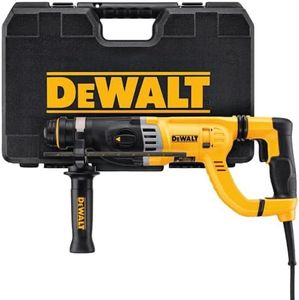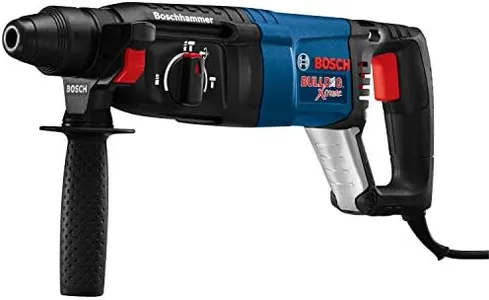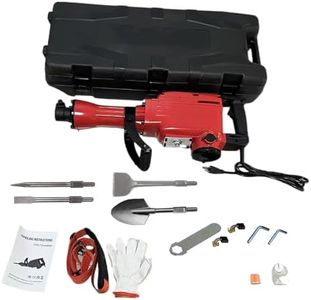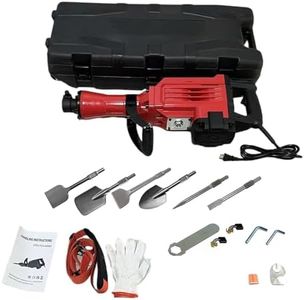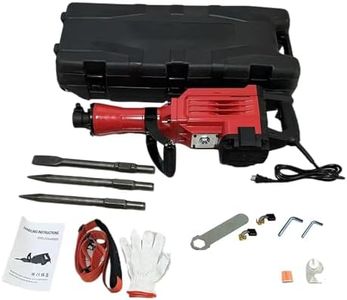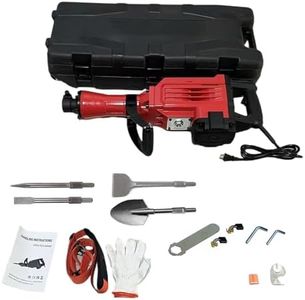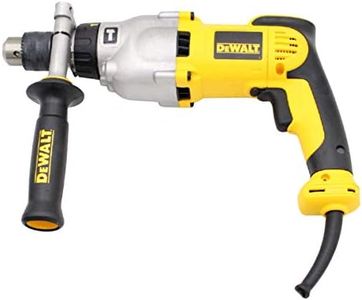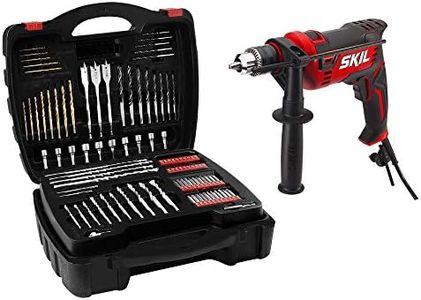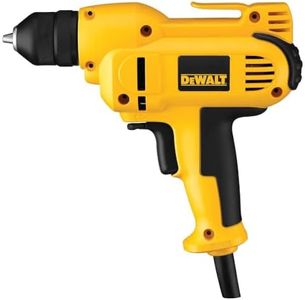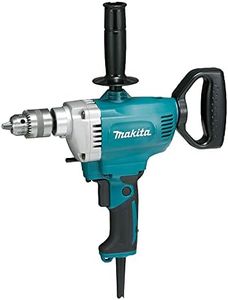10 Best Corded Drills 2026 in the United States
Our technology thoroughly searches through the online shopping world, reviewing hundreds of sites. We then process and analyze this information, updating in real-time to bring you the latest top-rated products. This way, you always get the best and most current options available.

Our Top Picks
Winner
DEWALT Electric Drill, Spade Handle, 1/2-Inch, 9-Amp (DW130V)
Most important from
861 reviews
The DEWALT Electric Drill (DW130V) is a solid choice for both professional contractors and DIY enthusiasts looking for a reliable corded drill. With a powerful 9-amp motor, it delivers sufficient torque, making it well-suited for various applications such as drilling into wood and mixing materials like mud. Its speed range, from 0 to 550 RPM, allows for better control, which is particularly beneficial during delicate tasks or when working with different materials.
One of the standout features is the variable speed reversing switch. This functionality helps avoid air bubbles when mixing and enhances control when drilling, which can be particularly handy for users with different skill levels. Additionally, the drill weighs 7.5 lbs, providing a good balance between sturdiness and manageability, thus reducing user fatigue over extended periods of use.
Comfort is also a priority with the soft grip handle, making the drill pleasant to hold during longer tasks. It includes extra features like a 3-position side handle and a chuck key holder, which can enhance usability and convenience. However, it’s important to note that the maximum chuck size is limited to 0.5 inches. While this is adequate for many common tasks, it may not meet the needs of users requiring larger drill bits. The drill's power cord, while reliable, does limit mobility compared to battery-powered options, so it’s best suited for projects near a power source.
Most important from
861 reviews
Milwaukee 0299-20 Magnum 8 Amp 1/2-Inch Drill
Most important from
234 reviews
The Milwaukee 0299-20 Magnum 8 Amp 1/2-Inch Drill is a solid option for those in need of a reliable corded drill. One of its strongest features is its powerful 8.0 amp motor that delivers variable speed control ranging from 0 to 850 RPM, making it versatile for various drilling tasks. The heavy-duty keyed chuck ensures a secure grip on drill bits, and the all-metal gear case and diaphragm contribute to the drill's durability, which is essential for heavy-duty jobs.
The 8-foot, 3-wire rubber cord provides ample length for maneuverability, and the 360-degree locking side handle offers added stability and control during use. Additionally, the ergonomic textured grip and two-finger trigger enhance user comfort and balance, reducing fatigue during extended use. However, the drill is relatively heavy, which may cause some discomfort during prolonged tasks.
Another potential drawback is its limited warranty, which might not offer as much peace of mind as some users would like. The fact that it is manufactured in China may also be a consideration for those who prefer products made elsewhere. Despite these minor drawbacks, the Milwaukee 0299-20 Magnum drill's robust performance and thoughtful design features make it a strong contender for both professional and DIY users seeking a dependable corded drill.
Most important from
234 reviews
Right Angle Drill, 1/2 In, 355/750 RPM
Most important from
123 reviews
This Milwaukee right angle corded drill packs a solid 7-amp motor, which means it can handle moderately tough drilling tasks with ease. It offers up to 750 RPM, allowing for good control over drilling speed, especially useful for various materials. The 1/2-inch (or 6.35mm) chuck size is a standard size, making it compatible with a wide range of drill bits, including larger self-feed bits up to about 4-5/8 inches. The drill features variable speed control through its trigger, giving users precise control during operation.
One of its standout features is the 360-degree swiveling head and handle, designed to help you drill comfortably in tight or awkward spaces where regular drills might struggle. However, the drill is on the heavier side at 19 pounds, which might cause fatigue during extended use or for users needing a lightweight tool for overhead work. The drill is built from metal, contributing to durability but also to its weight. It comes with a limited warranty and a 30-day trial, allowing you to test it risk-free.
Although it is a bit bulkier than some other right angle drills, its power, versatility, and ergonomic features make it a good choice for DIYers and professionals who often work in cramped spaces and need a reliable corded drill.
Most important from
123 reviews
Buying Guide for the Best Corded Drills
When it comes to picking the right corded drill, it's important to consider your specific needs and the type of projects you'll be working on. Corded drills are known for their consistent power and reliability, making them a great choice for heavy-duty tasks and continuous use. To make an informed decision, you'll need to understand the key specifications and how they relate to your requirements.FAQ
Most Popular Categories Right Now
